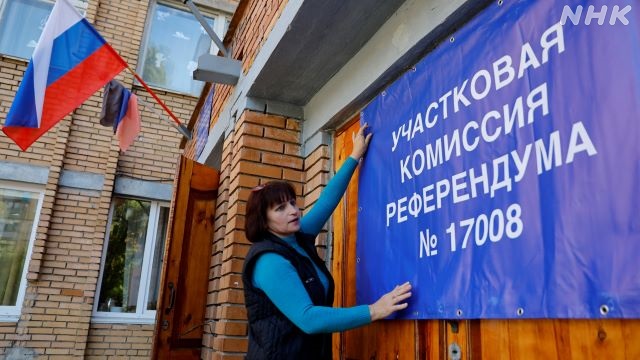From the 23rd, Russia's Putin administration plans to start activities that it calls a "referendum" aiming for unilateral annexation of the areas it controls in Ukraine.
On the other hand, local governments have strongly opposed this, saying that it does not reflect the actual situation and is not justified.
The Putin regime aims to unilaterally annex territories it controls in Ukraine, with pro-Russian rebels attacking Donetsk and Luhansk provinces in the eastern Donbass region, southeastern Zaporizhia province, and southern Kherson province from the 23rd to the 27th. We are planning to start an organized activity called "referendum".
Former Russian president Medvedev, vice chairman of the Security Council, posted on social media on the 21st that a referendum would be held and territories such as Donbass would be accepted by Russia, calling it a "referendum." suggested that Russia could annex the region.
Since the invasion of Ukraine, Medvedev has repeatedly made strong statements, stating, "The defense of the annexed territories will be greatly strengthened by the Russian military. Russia will not only mobilize but also use all weapons, including nuclear weapons, for defense. I can," he argued.
On the other hand, the American think tank "War Research Institute" has warned that the pro-Russian faction is working to strengthen surveillance of residents in the controlled areas and forcibly select only residents who support Russia.
Of these, the governor of Luhansk province, which is mostly occupied by Russia, Haidai, responded to an NHK interview online on the 22nd, saying, "After firing at demonstrators opposing the occupation, the Russian army took a large number of people by bus. I once called myself a resident who welcomed the Russian army," he said, adding that the "referendum" would not reflect the actual situation.
In an interview on the 22nd, the mayor of Severodonetsk, which was occupied in June and is a strategic point in the Luhansk region, Stryuk, also criticized that "free voting is impossible" while the Russian side is strictly monitoring the behavior of citizens, and voted. There is strong opposition from local governments, claiming that there is no legitimacy.

